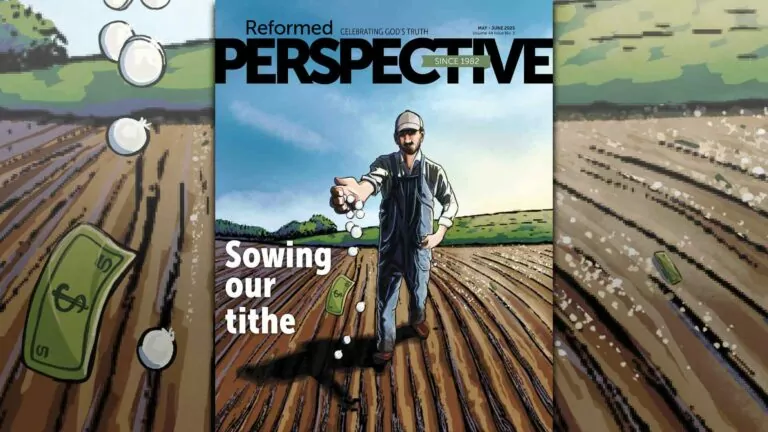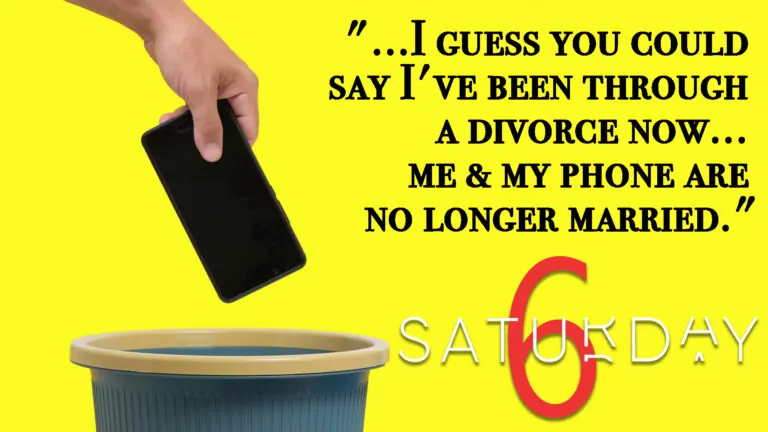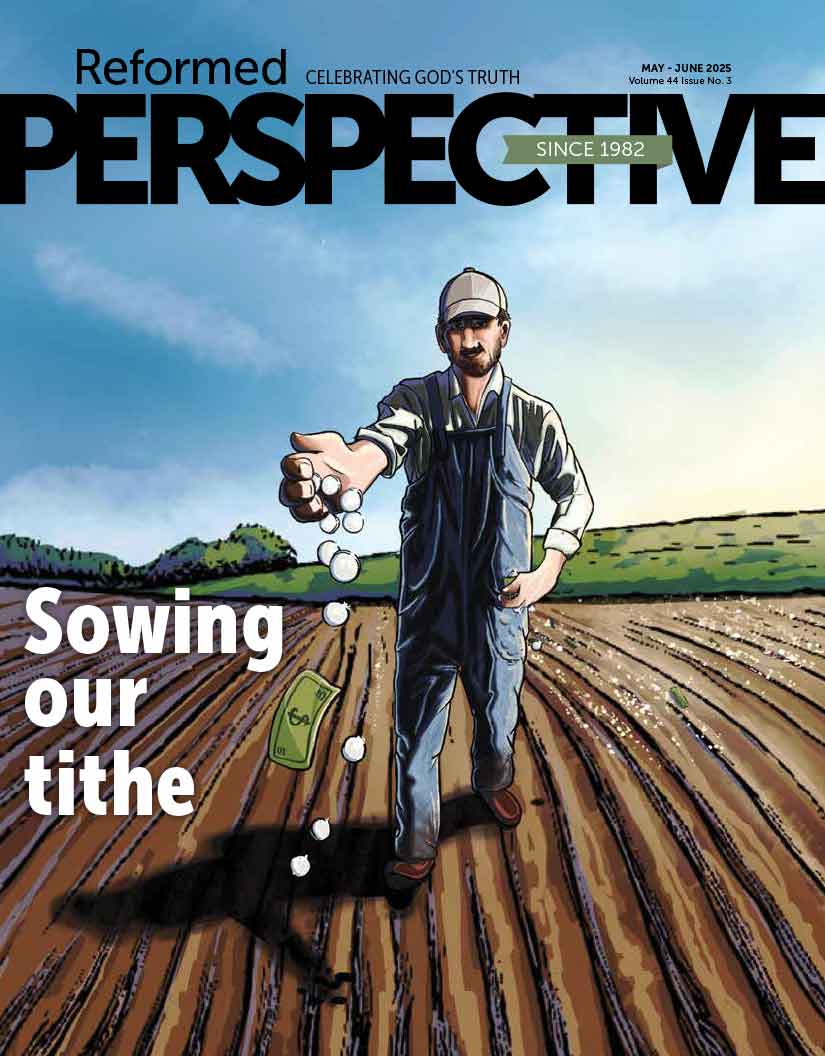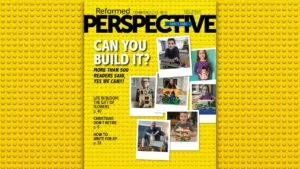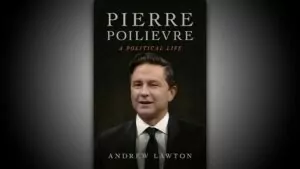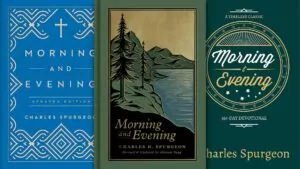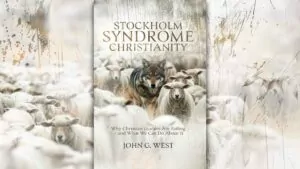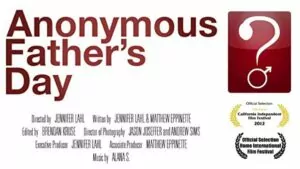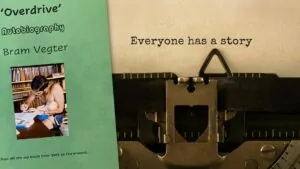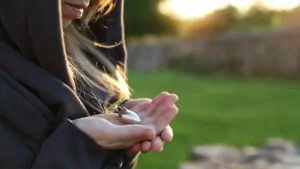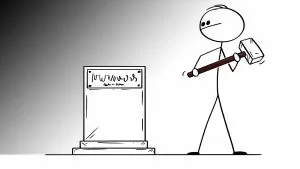200+ movies King David might watch
Great minds think alike, and the same month I was first compiling this article two of those great minds belonged to a missionary in Brazil and an evangelist in California.
The evangelist, Ray Comfort, passed along a story, first told by Jeremy Archer, about a man who invited all sorts of folks into his house to meet his family. Often the visitors would talk crudely and angrily with each other, teaching his children words he'd rather they not know. But these visitors could also get his whole family laughing so the man decided to focus on the good they did, rather than the bad.
Over time the man could see the visitors were having an impact on his family, and it wasn't a good one. He found that his own children were now using crude language and making coarse jokes. What was worse, the visitors were behaving outrageously, even taking their clothes off right there in front of his family!
That's hard to believe, isn't it? Why didn't the man just kick them out? Why didn't he protect his family from their influence? Well, it turns out this man had some sense, and as the visitors started getting naked the man acted. Together with his family, the man finally "turned off the television."
That same month the missionary, Rev. Ken Wieske, expressed the same concern, titling a Facebook post "David vows to get rid of his TV." Underneath he included the text of Psalm 101 which reads (in part):
I will ponder the way that is blameless.
Oh when will you come to me?
I will walk with integrity of heart
within my house;
I will not set before my eyes
anything that is worthless.
The pastor's point was clear: most of what's on TV is worthless and if King David were here on earth today, he might well pitch his TV right out of the palace. Of course, it isn't quite as easy as that. Today we also have computers, and smartphones, so getting rid of the TV isn't going to restrict our access to fluff and filth that's so readily available.
So let's take this a step further. Yes, much of what's on TV (and on YouTube, Facebook, etc.) is worthless. But some of it isn't. Some of it is quite good. Excellent even! So if we were to make the same promise King David makes in Psalm 101 – to put away all that is worthless – what sorts of films and videos might we still watch?
I've got some suggestions, and I've listed them under 10 categories, with 20 or more movie recommendations in most categories. My hope is that this list can help families find something worth watching. With over 235 suggestions I'm also hoping there will be something for everyone. There's just one documentary included here, but you can find a whole bunch more in our list of "100+ documentaries that make learning a joy."
Title, year, and length are included and, if there's a review available on ReformedPerspective.ca, I've indicated that by making the title all caps and clickable.
I've also included an entertainment rating. This is out of 10, and in my books, a 7 is a solid mark, while 8 is something special, and 6 is still watchable but there is some notable flaw (maybe some corny writing, or a bad bit of acting, that sort of thing). The only reason I've included a few films that rate as low as 6 is because they have something about them that makes them valuable viewing – oftentimes their educational value. I'll note also, that a 7 for a children's film means that this target audience will think it a 7, and not adults. The same is true of a black-and-white classic. If you hate anything B&W, then you probably won't like one with a solid 7 rating (though maybe you'd be swayed by one with an 8, 9, or 10).
One other note: none of these films and videos take God's name in vain. That's important. While a degree of violence and even sexual content of some sort can be appropriate on screen, the way God's name is abused on film just isn't.
More than 40 of the films below have the tag "FREE ONLINE" and can be viewed for free by clicking on the link provided.
ANIMATED VIDEOS (11)
This mix of shorter videos (whether standalone or TV series) can be ideal when mom wants to take a nap but doesn't want the kids sitting in front of the TV forever.
ANNE OF GREEN GABLES: THE ANIMATED SERIES – 2003, 25 min x 26 episodes – 7/10 – FREE ONLINE
ADVENTURES IN ODYSSEY – 1991-2003, 27 min x 17 episodes – 7/10
CURIOUS GEORGE – 2006-2022, 24 min x 198 episodes – 8/10
THE GRUFFALO – 2009, 27 minutes – 8/10
Horton Hears a Who – 1970, 30 minutes – 7/10
JUNGLE BEAT – 537 minutes – 10/10 – FREE ONLINE
LIFE AT THE POND – 2004-2009, 30 min x 5 episodes – 8/10
LOST AND FOUND – 2013, 24 minutes – 8/10
A Show about Anthem Lights – 2022-, 12 min x 20 episodes – 7/10
VEGGIETALES – only some are recommended – 7-8/10
Wallace and Gromit in Three Amazing Adventures – 1989-1995, 85 minutes – 7/10
ANIMATED "TORCHLIGHTERS" SERIES (9)
There are 20+ videos in the Torchlighter series, and the nine below are all great. While I haven't seen the whole series yet, there are a couple I haven't included for two different reasons. The first was on St. Patrick. While legends abound, little firsthand material on Patrick's life exists, making it hard to separate fact from fiction. That difficulty should have been acknowledged. Then, in the one on Augustine, an animated Jesus makes an appearance, and while I'm not wholly sure of the wrongness of visually depicting Christ, I am also not sure of its rightness, so I haven't recommended it. There are four more, I haven't yet watched, which I suspect might be good: The Robert Jermain Thomas Story, The George Muller Story, The Gladys Aylward Story, and The Richard Allen Story.
THE CORRIE TEN BOOM STORY – 2013, 34 minutes – 7/10 – FREE ONLINE
THE ERIC LIDDELL STORY – 2007, 31 minutes – 6/10 – FREE ONLINE
THE HARRIET TUBMAN STORY – 2018, 30 minutes – 7/10 – FREE ONLINE
THE JIM ELLIOT STORY – 2005, 30 minutes – 6/10 – FREE ONLINE
THE JOHN BUNYAN STORY – 2006, 30 minutes – 8/10 –FREE ONLINE
THE JOHN NEWTON STORY – 2021, 30 minutes – 7/10 – FREE ONLINE
THE MARTIN LUTHER STORY – 2016, 34 minutes – 7/10 – FREE ONLINE
THE RICHARD WURMBRAND STORY – 2008, 30 minutes – 6/10 – FREE ONLINE
THE WILLIAM TYNDALE STORY – 2005, 32 minutes – 6/10 – FREE ONLINE
ANIMATED FILMS (27)
It seems like cartoons used to be safe for kids, though boring for adults. Today, with the appearance of obscene animated fare like “South Park” and “Family Guy,” many cartoons are unsuitable for children, and for that matter, adults. But there has been a change for the better too – movies like “Curious George” and “Meet the Robinsons” show that some animated fare can keep the kids happy, and entertain their parents as well.
AN AMERICAN TAIL – 1986, 87 minutes – 9/10
BALTO – 1995, 78 minutes – 7/10
CHICKEN RUN – 2000, 84 minutes – 8/10
CURIOUS GEORGE – 2006, 88 minutes – 8/10
CURIOUS GEORGE 3: BACK TO THE JUNGLE – 2015, 81 minutes – 7/10
CURIOUS GEORGE: ROYAL MONKEY – 2019, 86 minutes – 7/10
Finding Dory – 2016, 97 minutes – 7/10
Finding Nemo – 2003, 100 minutes – 8/10
FOX AND THE HOUND – 1981, 83 minutes – 8/10
THE MANY ADVENTURES OF WINNIE THE POOH – 1977, 74 minutes – 9/10
Meet the Robinsons – 2007, 95 minutes – 8/10
MINISCULE - 2014, 89 minutes – 7/10
Monsters Inc. – 2001, 93 minutes – 9/10
Monsters University – 2013, 104 minutes – 8/10
PAW PATROL: THE MOVIE – 2021, 86 minutes – 8/10
PAW Patrol: The Mighty Movie – 2023, 87 minutes – 8/10
THE PEANUTS MOVIE – 2015, 88 minutes – 8/10
SGT. STUBBY: AN UNLIKELY HERO - 2018, 84 minutes – 8/10
THE SUPER MARIO BROS. MOVIE – 2023, 92 minutes – 7/10
TANGLED – 2010, 100 minutes – 9/10
TOY STORY 1, 2, 3, and 4 – 1995-2019, 81-103 minutes – 8/10
Up – 2009, 96 minutes – 9/10
Wall-E – 2008, 98 minutes – 9/10
WINNIE THE POOH – 2011, 63 minutes – 8/10
See also Leo Da Vinci: Mission Mona Lisa, Long Way North, and The Secret World of Arrietty in Foreign Films, and Animal Farm, Boxcar Children, Boxcar Children: Surprise Island, and The Hobbit, Lord of the Rings, and The Phantom Tollbooth in Based on a Book, Tintin: Destination Moon in Children.
BASED ON A BOOK (24)
It's always hard to live up to the book, but some of these get awfully close!
20,000 LEAGUES UNDER THE SEA – 1954, 127 minutes – 7/10
THE ADVENTURES OF ROBIN HOOD – 1938, 101 minutes – 8/10
The Adventures of Sherlock Holmes – 1939, 82 minutes – 7/10
ANIMAL FARM – 1954, 72 minutes – 7/10
THE BOXCAR CHILDREN – 2013, 81 minutes – 7/10
THE BOXCAR CHILDREN: SURPRISE ISLAND - 2018, 82 minutes – 6/10
THE GIVER – 2014, 97 minutes – 8/10
THE GOSPEL BLIMP - 1967, 38 minutes – 8/10 – FREE ONLINE
Ivanhoe – 1952, 107 minutes – 7/10
THE HOBBIT – 1977, 77 minutes – 7/10
The Lion, the Witch, and the Wardrobe – 1979, 95 minutes – 7/10
The Lion, the Witch and the Wardrobe – 2005, 125 minutes – 8/10
Little Women – 1949, 121 minutes – 8/10
LITTLE WOMEN – 1994, 118 minutes – 9/10
THE LORD OF THE RINGS (ANIMATED) – 1978, 133 minutes – 7/10
THE MAN IN THE IRON MASK – 1939, 113 minutes – 6/10 – FREE ONLINE
THE PHANTOM TOLLBOOTH – 1970, 89 minutes – 7/10
POLLYANNA – 2003, 99 minutes – 8/10
PRIDE AND PREJUDICE – 2003, 104 minutes – 8/10
THE PRINCE AND THE PAUPER – 1937, 118 minutes – 8/10
Prince Caspian – 2008, 154 minutes – 8/10
Rascal – 1969, 85 minutes – 7/10
SWALLOWS AND AMAZONS – 2016, 96 minutes – 7/10
SWISS FAMILY ROBINSON – 1960, 126 minutes – 8/10
See also The 3 Worlds Of Gulliver and Lassie Come Home in Children.
BLACK & WHITE CLASSICS (19)
These have all stood the test of time and are still being watched again and again.
12 ANGRY MEN – 1957, 96 minutes – 9/10
THE AMAZING ADVENTURE – 1936, 62 minutes – 7/10 – FREE ONLINE
THE ABSENT-MINDED PROFESSOR – 1961, 96 minutes – 8/10
Adam's Rib – 1949, 101 minutes – 8/10
CASABLANCA – 1943, 103 minutes – 10/10
Citizen Kane – 1941, 119 minutes – 7/10
HIGH NOON – 1952, 85 minutes – 9/10
I Remember Mama – 1948, 134 minutes – 7/10
It Should Happen to You – 1954, 87 minutes – 7/10
The Man in the White Suit – 1951, 85 minutes – 7/10
THE MAN WHO SHOT LIBERTY VALANCE – 1962, 123 minutes – 8/10
MEET JOHN DOE – 1941, 122 minutes – 7/10 – FREE ONLINE
Mr. Deed Goes to Town – 1936, 115 minutes – 7/10
Mr. Smith Goes to Washington – 1939, 129 minutes – 8/10
Ninotchka – 1939, 110 minutes – 8/10
SEA HAWK – 1940, 127 minutes – 8/10
THE SIGN OF ZORRO – 1958, 90 minutes – 8/10
THE SHOP AROUND THE CORNER – 1949, 99 minutes – 9/10
The Tin Star – 1957, 92 minutes – 7/10
See also Roman Holiday in For Mom and Dad.
BLACK & WHITE SILENT CLASSICS (6)
As a subcategory to the above are a half dozen silent film selections. If you've never gotten into silent films, be sure to start with the comedies – there the overwrought acting just adds to the funny. And Buster Keaton is the best!
THE GENERAL – 1927, 80 minutes – 8/10
The Gold Rush – 1925, 96 minutes – 7/10
GRANDMA'S BOY – 1922, 56 minutes – 7/10 – FREE ONLINE
SEVEN CHANCES – 1925, 56 minutes – 8/10
SHERLOCK JR. – 1924, 44 minutes – 8/10 – FREE ONLINE
Steamboat Bill, Jr. – 1928, 70 min – 7/10
BIOGRAPHICAL (16)
Most of these are Christian biographies, and being true gives them a leg up on fictional Christian fare that too often concludes with “happily ever after” endings, more fairytales than our one true faith. It’s simply a fact that here on earth bad things often happen to good, faithful Christians. I will also note that while many of these are great, others are merely okay (ranking only a 6), but are still included here because of their educational value.
THE CASE FOR CHRIST – 2017, 113 minutes – 7/10
C.S. LEWIS ONSTAGE – 2018, 76 minutes – 7/10 – FREE ONLINE
C.S. LEWIS: THE MOST RELUCTANT CONVERT – 2021, 93 minutes – 9/10
END OF THE SPEAR – 2006, 108 minutes – 7/10
FINAL SOLUTION – 2001, 102 minutes – 8/10 – FREE ONLINE
GOD'S OUTLAW: THE STORY OF WILLIAM TYNDALE – 1988, 93 minutes – 6/10 – FREE ONLINE
GOSNELL: THE TRIAL OF AMERICA'S BIGGEST SERIAL KILLER – 2018, 93 minutes – 8/10
THE JACKIE ROBINSON STORY – 1950, 77 minutes – 7/10 – FREE ONLINE
JOHN HUS: A JOURNEY OF NO RETURN – 2015, 55 minutes – 7/10 – FREE ONLINE
MARTIN LUTHER – 1953, 105 minutes – 7/10 – FREE ONLINE
THE MIRACLE WORKER – 1962, 106 minutes – 9/10
SABINA: TORTURED FOR CHRIST, THE NAZI YEARS – 2022, 115 minutes – 7/10 – FREE ONLINE
THE SPIRIT OF ST. LOUIS – 1957, 135 minutes – 7/10
TORTURED FOR CHRIST - 2018, 77 minutes - 8/10 – FREE ONLINE
UNBROKEN: PATH TO REDEMPTION – 2018, 98 minutes – 8/10
THE WRIGHT BROTHERS – 1996, 27 minutes – 7/10
See also I Can Only Imagine and Unsung Hero in For Mom and Dad.
CHILDREN (16)
This is fare for younger children – not a lot of tension here. And that means, while the kids will probably like it, mom and dad might not. Because children often watch their favorite videos repeatedly, even dozens of times, it’s all the more important to make sure what they do watch is the good stuff.
THE 3 WORLD'S OF GULLIVER – 1960, 99 minutes – 7/10
BUDDY DAVIS' AMAZING ADVENTURES – 2011-2021, 6 episodes of 25-58 min – 7/10
THE CREATION ADVENTURE TEAM – 2001-2002, 40 min x 2 episodes – 7/10 – FREE ONLINE
THE DEFENSE OF NEW HAVEN – 2016, 82 minutes – 7/10 – FREE ONLINE
DUDE PERFECT: BACKSTAGE PASS – 2020, 84 minutes – 8/10 – FREE ONLINE
INCREDIBLE CREATURES THAT DEFY EVOLUTION I, II, & III – 2006, 47 minutes – 7/10
LASSIE COME HOME – 1943, 90 minutes – 8/10
A LEGO BRICKUMENTARY – 2015, 93 minutes – 7/10
MISTY – 1961, 91 minutes – 7/10
THE NEWTONS' WORKSHOP – 1997, 226 minutes – 7/10
ODD SQUAD: THE MOVIE – 2016, 67 minutes – 7/10
PATTERNS OF EVIDENCE: YOUNG EXPLORERS – 2020, 190 minutes – 7/10 – FREE ONLINE
THE RUNNER FROM RAVENSHEAD – 2010, 81 minutes – 7/10 – FREE ONLINE
THE SPARKY CHRONICLES – 2003, 28 minutes – 7/10 – FREE ONLINE
SPACE BUDDIES – 2009, 84 minutes – 7/10
THE WILD BROTHERS (8 episodes) – 2015-2020, 28-30 minutes each – 7/10
FAMILY FUN (30)
These are films that mom and dad can also look forward to watching. But that does mean that some of them have action or drama that may be too intense for your youngest children. So be sure to research age-appropriateness.
BABES IN TOYLAND – 1961, 105 minutes – 7/10
A BEAR CALLED WINNIE – 2004, 90 minutes – 7/10
BEYOND THE MASK – 2015, 103 minutes – 8/10
BORN FREE - 1966, 95 minutes – 8/10
CITY OF EMBER – 2008, 95 minutes – 7/10
CONDORMAN – 1981, 90 minutes – 7/10
The Court Jester – 1956, 101 minutes – 8/10
Emil and the Detectives – 1964, 98 minutes – 7/10
THE FIGHTING PRINCE OF DONEGAL – 1966, 110 minutes – 7/10
GRACE UNPLUGGED – 2013, 102 minutes – 7/10
Greyfriars Bobby – 1961, 92 minutes – 8/10
Hangman's Curse – 2003, 106 minutes – 8/10
THE INCREDIBLE JOURNEY – 1963, 89 minutes – 8/10
JACK AND THE BEANSTALK – 1952, 83 minutes – 7/10
THE JENSEN PROJECT – 2010, 95 minutes – 8/10
JOHNNY TREMAIN – 1957, 80 minutes – 7/10
The Last Chance Detectives – 1994, 50 min x 3 episodes – 7/10
THE LEGEND OF 5 MILE CAVE – 2019, 90 minutes – 7/10
MY FRIEND FLICKA – 1942, 89 minutes – 7/10
Old Yeller – 1957, 84 minutes – 9/10
THE SECRETS OF JONATHAN SPERRY – 2008, 96 minutes – 6/10 – FREE ONLINE
Shark Boy and Lava Girl 3D – 2005, 93 minutes – 7/10
STORM: LUTHER'S FORBIDDEN LETTER – 2017, 105 minutes – 7/10 – FREE ONLINE
SWITCHED – 2020, 104 minutes – 6/10
THE SWORD AND THE ROSE – 1953, 92 minutes – 7/10
THE THREE INVESTIGATORS IN THE SECRET OF SKELETON ISLAND – 2007, 91 minutes – 7/10
TIME CHANGER – 2002, 99 minutes – 7/10 – FREE ONLINE
UNITARDS – 2010, 107 minutes – 8/10
A WEEK AWAY – 2021, 97 minutes – 9/10
Who is Simon Miller? – 2011, 85 minutes – 7/10
FOREIGN FILMS (10)
Part of the pleasure of watching films set in foreign locales is that they provide a peek into unfamiliar cultures. Most of us will never be able to visit Mongolia or Iran but we can get an insight into the cultural life of those communities by watching their films.
ANTBOY - DENMARK – 2013, 77 minutes – 7/10 – FREE ONLINE
BELLE AND SEBASTIAN – FRANCE – 2013, 99 minutes – 8/10
Children of Heaven – IRAN – 1997, 87 minutes – 7/10
Godzilla – JAPAN – 1954, 96 minutes – 7/10
LEO DA VINCI: MISSION MONA LISA – ITALY – 2020, 82 minutes – 8/10
LONG WAY NORTH – DENMARK – 2015, 81 minutes – 7/10
NOT ONE LESS – CHINA – 2000, 106 minutes – 7/10
THE RED BALLOON – FRANCE – 1956, 34 minutes – 7/10 – FREE ONLINE
THE SECRET WORLD OF ARRIETTY – JAPAN – 2010, 95 minutes – 8/10
The Story of the Weeping Camel – MONGOLIA – 2003, 87 minutes – 7/10
"HALLMARK-Y" (10)
Before they got woke, Hallmark made a lot of films appreciated for being safe and good, and though they were rarely great there were a few of those too. Sometimes they'd even be based on Christian books. Not all of these are from Hallmark, but they are all of that sort.
AN AMERICAN IN AUSTEN – 2024, 84 minutes – 7/10
EXTRAORDINARY – 2017, 86 minutes – 6/10 – FREE ONLINE
GOOD SAM – 2019, 90 minutes – 8/10
HIDDEN PLACES – 2005, 86 minutes – 6/10
LOVE ON A LIMB – 2016, 84 minutes – 7/10
LOVE'S LONG JOURNEY – 2005, 88 minutes – 7/10
A ROYAL CHRISTMAS – 2014, 87 minutes – 7/10
SARAH, PLAIN AND TALL – 1990, 98 minutes – 8/10
THE ULTIMATE GIFT – 2006, 114 minutes – 7/10
UNLEASHING MR. DARCY – 2016, 84 minutes – 7/10
See also Roman Holiday in "For Mom and Dad."
FOR MOM AND DAD (24)
These are films intended for an adult audience, movies and videos to enjoy with your better half...and sometimes with the older kids too.
2081 – 2009, 25 minutes – 8/10 – FREE ONLINE
ALLEGED – 2011, 93 minutes – 8/10
Anastasia – 1956, 105 minutes – 7/10
AUDACITY: LOVE CAN'T STAY SILENT – 2015, 50 minutes – 7/10 – FREE ONLINE
The Caine Mutiny - 1954, 124 minutes – 7/10
COURAGEOUS – 2011, 129 minutes – 8/10
FREEDOM – 2014, 94 minutes – 7/10
HIDDEN BLESSINGS – 2024, 107 minutes – 8/10 – FREE ONLINE
THE HOBBIT TRILOGY – 2012-2014 – 7-8/10
I CAN ONLY IMAGINE - 2018, 110 minutes - 8/10
The Lord of the Rings Trilogy – 2001-2003 – 10/10
LIKE DANDELION DUST – 2009, 104 minutes – 8/10
ROBERTA – 1935, 106 minutes – 7/10
ROMAN HOLIDAY – 1953, 118 minutes – 8/10
The Second Chance – 2006, 102 minutes – 7/10
THE SONG – 2014, 116 minutes – 9/10
SOUND OF FREEDOM – 2023, 131 minutes – 8/10
TO SAVE A LIFE – 2010, 120 minutes – 8/10
UNSUNG HERO – 2024, 112 minutes – 8/10
A VOW TO CHERISH – 1999, 84 minutes - 8/10 – FREE ONLINE
SPORTS (11)
These are a mixed lot, with "Woodlawn" definitely for older audiences and "Going to the Mat" something for a younger age group.
BACK OF THE NET – 2019, 86 minutes – 7/10
FACING THE GIANTS – 2006, 111 minutes – 7/10
FOREVER STRONG – 2008, 109 minutes – 7/10 – FREE ONLINE
GOING TO THE MAT – 2004, 82 minutes – 8/10
THE HORSE IN THE GRAY FLANNEL SUIT – 1968, 113 minutes – 7/10
HANS BRINKER OR THE SILVER SKATES – 1962, 90 minutes – 8/10
MERCY RULE – 2014, 119 minutes – 7/10
NEVER GIVE UP – 2023, 79 minutes – 6/10 – FREE ONLINE
OVERCOMER – 2019, 119 minutes – 7/10
TWELVE – 2019, 92 minutes – 7/10
WOODLAWN - 2015, 123 minutes - 9/10
See also The Jackie Robinson Story in Biographical, and Extraordinary in "Hallmark-y," and the documentary Long Short: the Kevin Laue Story.
WAR FILMS (20)
The Second World War might have been the first major conflict in which film could play a role, presenting stories intended to encourage those on the frontlines and at home. The most inspiring World War II films show ordinary, average people doing extraordinary, heroic things (many of whom were our parents, grandparents or great grandparents, hiding Jews or otherwise putting themselves at risk simply because they knew it had to be done). Many of the best World War II films were made during the war – they have a completely different feel, because no one at the time knew what the war’s outcome would be!
BATAAN – 1943, 114 minutes – 8/10
Decision Before Dawn – 1951, 119 minutes – 7/10
DESPERATE JOURNEY – 1942, 107 minutes – 8/10
Destination Tokyo – 1944, 135 minutes – 8/10
Edge of Darkness – 1943, 119 minutes – 7/10
The Fighting Seabees - 1944, 99 minutes – 7/10
FLYING TIGERS – 1942, 104 minutes - 7/10
THE FOREIGN CORRESPONDENT – 1940, 120 minutes – 7/10
THE GREAT DICTATOR – 1940, 125 minutes – 8/10
Hail the Conquering Hero – 1944, 101 minutes – 7/10
Objective Burma! – 1945, 142 minutes – 7/10
RUN SILENT, RUN DEEP – 1958, 93 minutes – 8/10
SABOTEUR – 1942, 109 minutes – 7/10
Sahara – 1943, 98 minutes – 7/10
Sands of Iwo Jima – 1949, 100 minutes – 7/10
THE SILVER FLEET – 1943, 88 minutes – 7/10
They Were Expendable – 1945, 135 minutes – 7/10
To Be Or Not To Be – 1942, 99 minutes – 8/10
Twelve O'clock High – 1949, 132 minutes – 8/10
Why We Fight – 1942-45, 417 minutes – 7/10
See also Sgt. Stubby (Animated Films), Belle and Sebastian (Foreign Films), Sea Hawk and Casablanca (Black and White Classics).
BONUS #1 - TV SERIES (2)
With TV series, it isn't possible to evaluate the whole run, so some of these will be rated by season, and other just by the first episode or three.
SUE THOMAS F.B.EYE – 2002, 41-minute episodes (57 in all) – 8/10 – FREE ONLINE
Danger Man (Season 1) – 1960-62, 25-minute episodes (39 in all) – 8/10
BONUS #2 - OBSCURE BUT IMPRESSIVE (4)
These ones aren't easy to find but, for some, might be worth the hunt.
The Pistol: The Birth of a Legend – 1991, 104 minutes – 7/10
Seasons of the Heart – 2003, 99 minutes – 8/10
Snuf de Hond in Oorlogstijd – 2008, 95 min – 8/10
THE WAY THINGS WORK – 2001, 300+ minutes – 8/10
This post first appeared on www.ReelConservative.com. RP has also done an issue of the magazine on movies you can find here....
